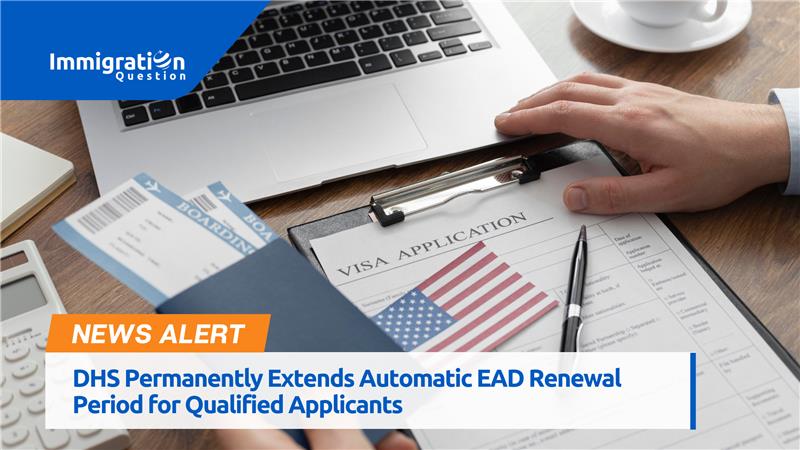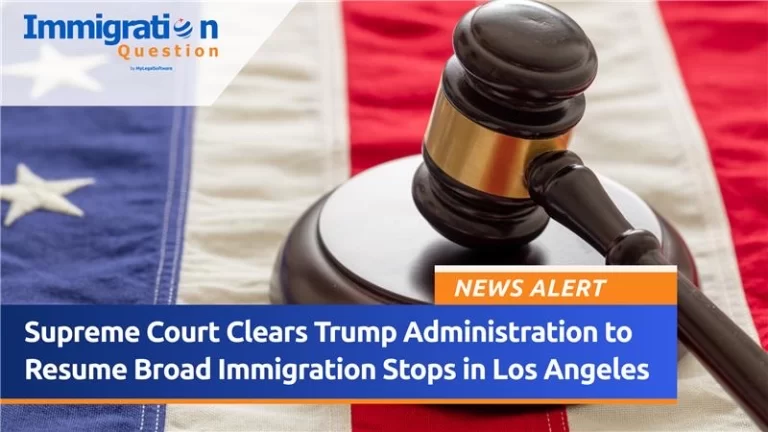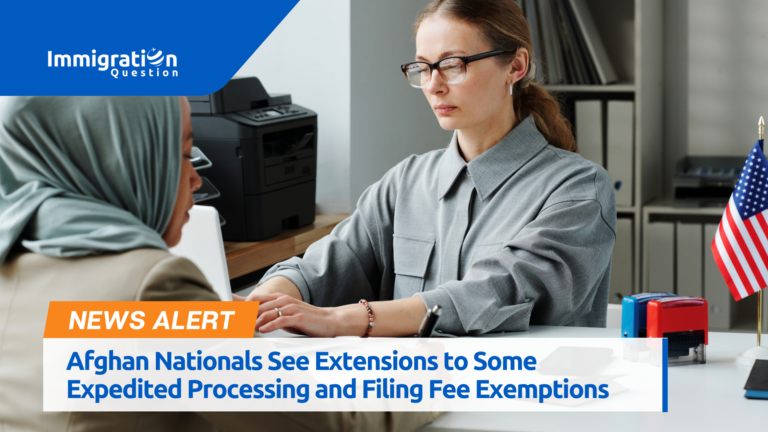DHS Permanently Extends the Automatic EAD Renewal Period for Qualified Applicants
The Department of Homeland Security (DHS) has made a recent announcement that will significantly impact noncitizens and their U.S. employers. A final rule has been issued to permanently extend the automatic extension period for employment authorization and Employment Authorization Documents (EADs) from 180 days to an impressive 540 days for eligible applicants.
This change will provide much-needed relief to applicants who file timely renewal applications (Form I-765) but face long processing delays by U.S. Citizenship and Immigration Services (USCIS).
Background of the Rule on DHS Extends EAD Renewal Period
The final rule follows two temporary regulations previously implemented to address processing backlogs. The DHS is now solidifying these changes into a permanent regulation to manage the adverse effects of EAD expiration for applicants awaiting renewals.
The updated rule finalizes the temporary regulation published in the Federal Register on April 8, 2024, which introduced the extended automatic extension period. By making this provision permanent, DHS will reduce the risk of employment interruptions for eligible applicants and their employers, who depend on EAD renewals.
Impact of the Final Rule on DHS Extends EAD Renewal Period
Lapses in employment authorization affect individuals and businesses. Such delays can result in financial instability for noncitizens and work disruptions for U.S. employers.
Eligible renewal applicants who have filed their EAD renewal applications will now have up to 540 days of automatic extension from the expiration date listed on their existing EADs. This new development means individuals and employers can avoid employment authorization and documentation disruptions while USCIS processes renewal requests.
DHS has committed to improving the EAD renewal process, ensuring that individuals, employers, and the broader public are less burdened by administrative delays. Increasing the automatic extension period reduces employment interruptions and encourages continuity in the workforce.
Essential Points to Note on DHS Extends EAD Renewal Period
- The rule applies to eligible EAD renewal applications pending or filed on or after May 4, 2022.
- An EAD that appears expired on its face will be considered unexpired when paired with a Form I-797C receipt notice of a timely EAD renewal application.
- DHS encourages individuals and employers to use the Automatic Extension Eligibility Calculator to confirm their eligibility and determine the extended expiration date of an EAD.
- The final rule will officially take effect on January 10, 2025, 30 days after its publication in the Federal Register.
Noncitizens relying on EAD renewals for continued employment can breathe a sigh of relief, knowing that the risk of unemployment due to USCIS delays has been significantly reduced. U.S. employers also benefit by being able to maintain operational stability.
Stay informed about further updates to ensure compliance and uninterrupted employment authorization. Look out for our news section or drop your immigration queries on Immigration Question for quick responses.










